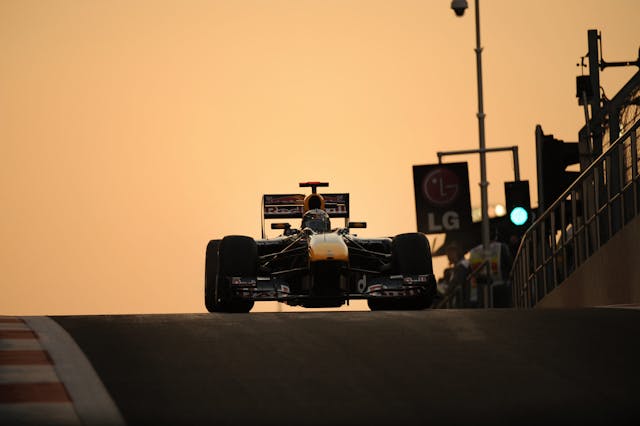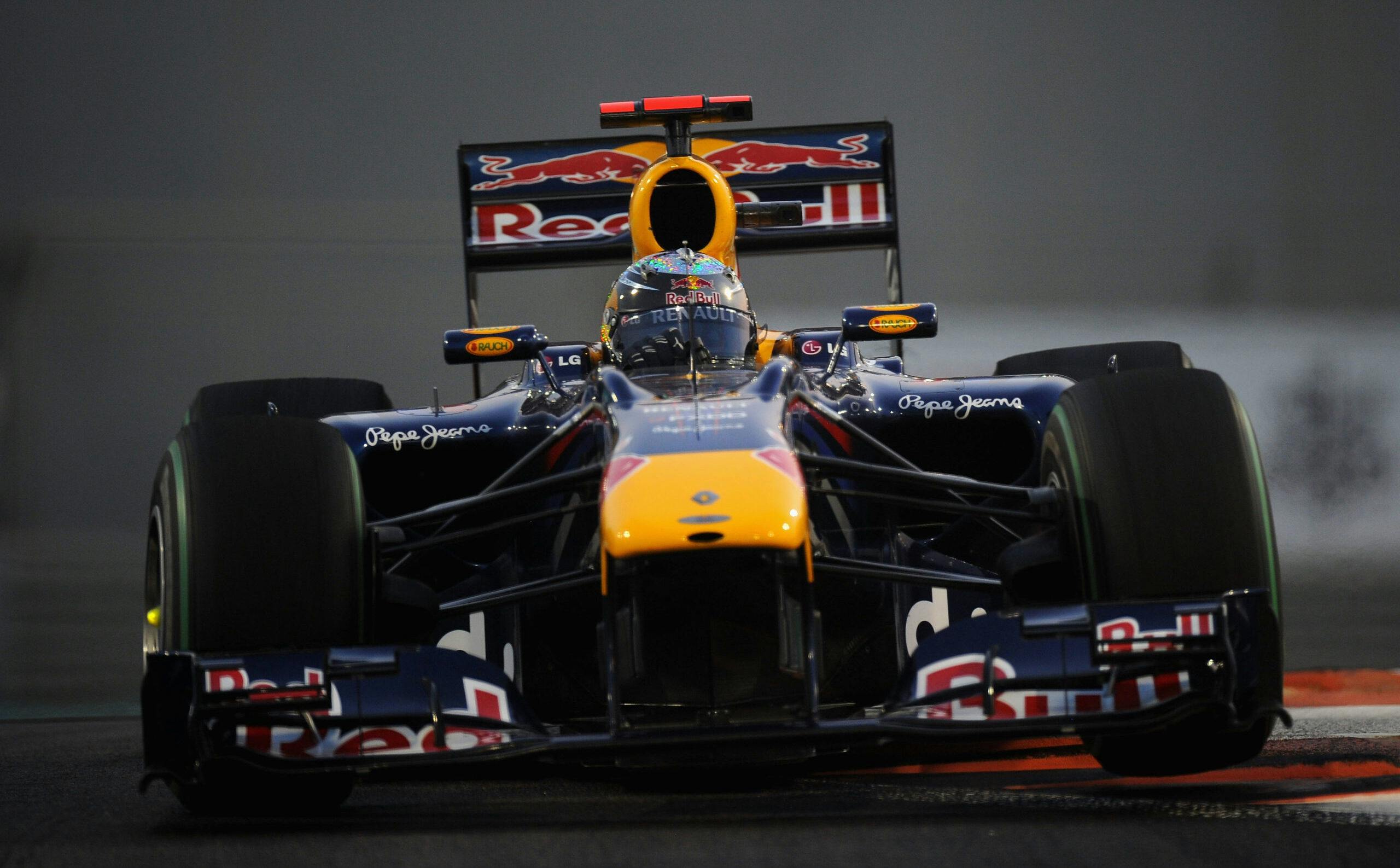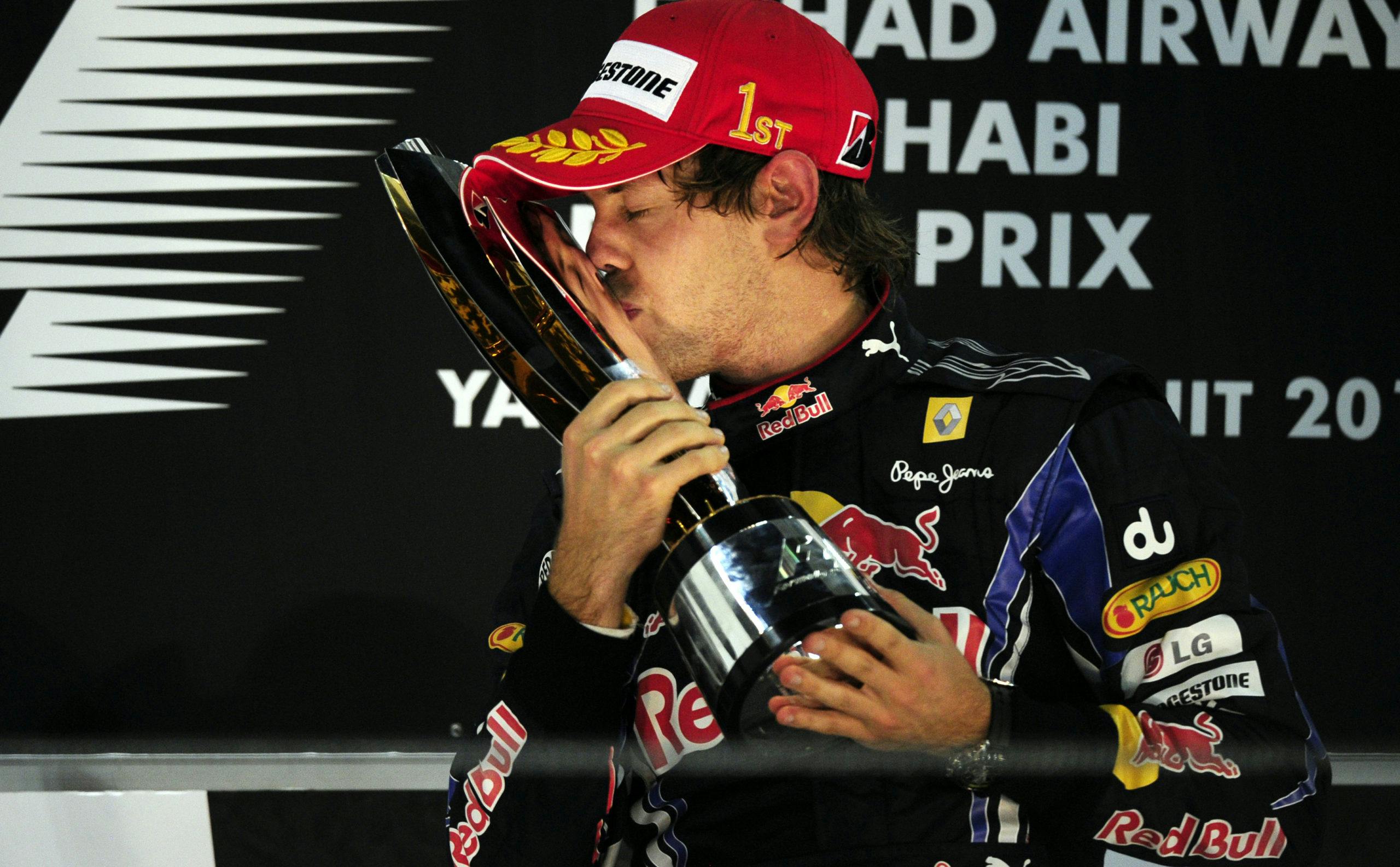2010’s F1 championship went down to the wire in Abu Dhabi
Halfway through the final race of Formula 1’s 2010 season, championship contender Fernando Alonso found himself mired back in the pack, staring at a Renault’s rear wing in disbelief. For the Spaniard, this wasn’t part of the plan.
Renault driver Vitaly Petrov was slower, but Alonso couldn’t find a way around and remained stuck behind the Russian driver. He could feel the title slipping away as the Renault obstinately covered his every move.
The 2010 Abu Dhabi Grand Prix was Formula 1’s season finale, just as it is in 2022. Unlike this year’s championship, which was clinched by Max Verstappen over a month before the final race, four drivers stood on the Abu Dhabi grid with a chance to win the title.
From the outset, the 2010 world championship was wide open for the taking. Ferrari, McLaren, and Red Bull drivers had all been favorites at one point throughout the season.
Going into Abu Dhabi—F1’s first race that started during the day and transitioned to night—Alonso was considered champion elect. Red Bull teammate Mark Webber and Sebastian Vettel were close behind. And Lewis Hamilton was a long shot for McLaren. It marked the first time in F1 history that four drivers had a shot at the world championship in the final race. While most guessed it would come down to the wire, nobody could have predicted the drama that would unfold on the Yas Marina circuit.
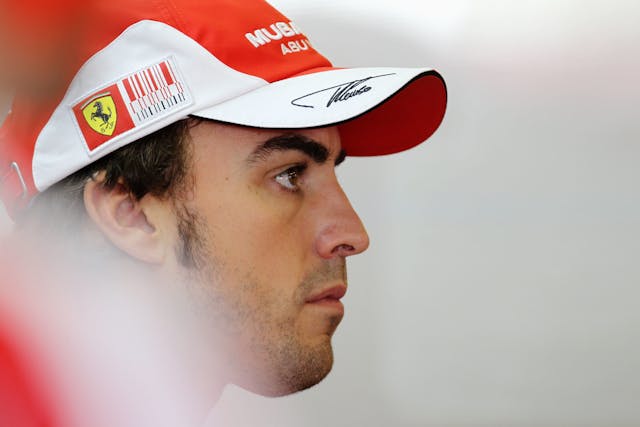
Among the paths to the 2010 title, Alonso’s was the smoothest. If he finished second, the title was his, no matter where Webber or Vettel finished. The two Red Bull teammates didn’t need to win, but it would go a long way to improve either’s title probability. Hamilton had to win and hope that Alonso didn’t score points. Also, neither Red Bull driver could finish higher than sixth. A long shot, yes, but not out of the question.
Vettel took the initiative. The German would start first ahead of Hamilton and Alonso. Webber was fifth after struggling to get his tires up to temperature in qualifying.

At the start, it was Vettel who eased into the lead. Behind him, Hamilton and his teammate Jenson Button. Alonso was fourth. Finish there and he’d lift his third title, even if Vettel won.
This was the first season at Ferrari for Alonso. Driver and team had won their first race together but didn’t really gel until round 11 in Germany. That grand prix started a run that had resulted in four wins, a second and two thirds in eight races.
By November 14, in Abu Dhabi, Alonso was feeling invincible. On the other hand, teammate Felipe Massa wasn’t quite as comfortable and would instead be called into action to help secure the title for Alonso. Massa was running comfortably in sixth position, when Ferrari called him to pit on lap 13, hoping to sneak past Webber.
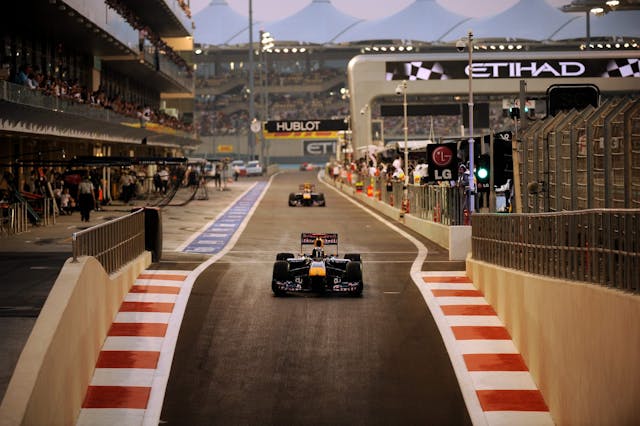
Webber was experiencing heavy rear-tire wear. His team reckoned that it had nothing to lose, so it opted to change tires on lap 11. If Ferrari could get Massa out ahead of Webber, it could protect Alonso.
After the two cycled through their respective stops, it was Webber in front of Massa’s Ferrari.
The Massa ploy had failed, and Ferrari was in trouble. What if Webber’s early-stop strategy paid off later in the race? He might leapfrog Alonso, and even worse, snatch the nine extra points he needed for the title. “They [Ferrari] were aiming at two tongs but only had one hammer,” Webber quipped after the race.
To the surprise of its rival teams, Ferrari decided to cover Webber, calling Alonso in for his only pit stop on lap 15. The Spaniard duly came out ahead of Webber. Still, Vettel was unthreatened out front.
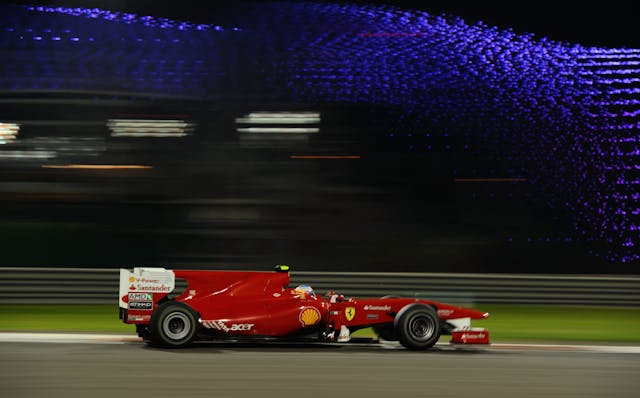
Abu Dhabi’s Yas Marina track has several unique features, including a tunnel that doubles as the pit-lane exit. More importantly, for Alonso, the course layout is also tight, with minimal passing opportunities. After his pitstop, he was relegated to 12th place behind Petrov in that pesky Renault.
As the laps ticked down and the pit stops played out, the three drivers—Petrov, Alonso, and Webber—climbed through the field, but not quickly enough.
Over the radio, Ferrari urged Fernando to clear Petrov (as if he wasn’t already aware of the urgency).
By the end of the 55th and final lap, Petrov, Alonso, and Webber were running sixth, seventh, and eighth, covered by less than a second. The six points Fernando scored for seventh place were never going to be sufficient if Vettel won the race. What if Hamilton won? Then Alonso could still have a chance.
After his only pitstop, Hamilton rejoined the track behind Robert Kubica’s Renault—too far back to challenge Vettel. When the German driver stopped, all his crew had to do was get him out ahead of the pack.
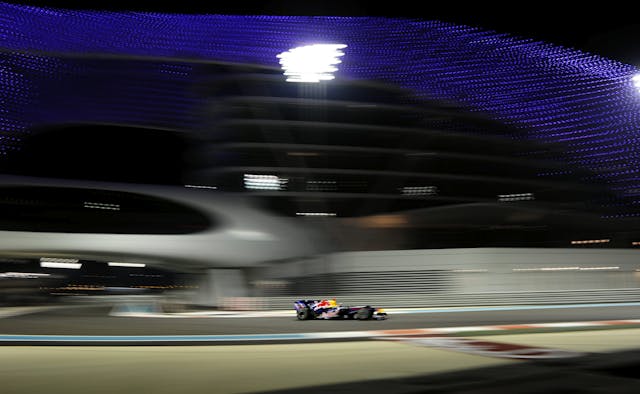
Following a quick stop, Vettel cleared the field by 10 seconds and maintained the lead for the rest of the race. In doing so, he won his first of four titles, and became Formula 1’s youngest world champion at 23 years and 134 days.
Vettel went uncharacteristically quiet on the Red Bull’s radio, likely overcome with the emotion of his achievement. Alonso’s feelings played out in a different way. He drew his Ferrari alongside Petrov and started making obscene hand gestures to his Renault-driving rival. The Russian was unperturbed, simply stating that he’d be angry too in Alonso’s position.
When Vettel crossed the Yas Marina finish line, he led the 2010 championship for the first time—and for the only moment it really counted.
Check out the Hagerty Media homepage so you don’t miss a single story, or better yet, bookmark us.
